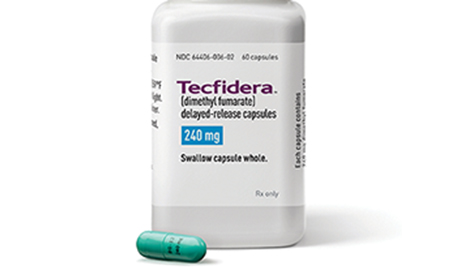Warehoused patients, months of Wall Street hype, and positive clinical data all added to the anticipation around Biogen Idec’s Tecfidera MS drug. Months following launch, this Cinderella story—of a chemical used to treat sofas—has all the makings of a launch that has lived up to its hype.
“Tecfidera CRUSHED it, this is really, truly incredible” gushed Mark Schoenebaum, commenting on the MS pill’s third-quarter, forecast-busting performance of $272 million in global sales for Q3.
The Weston, MA, outfit saw total revenues of $1.8 billion for the quarter—an increase of 32% from the same three months in 2012. SG&A expenses climbed 35% from last year, to $405 million from just $299 million last year.
A BioTrends report from the end of August noted that Tecfidera had already surpassed both Gilenya and Aubagio’s launches in terms of patient market share with 4%, while Novartis’s Gilenya and Aubagio both only claimed 1% of the MS market three months after their respective launches. It also found that the current physician trial rate was 65% for Tecfidera, while Gilenya came in at 53% and Aubagio at 33%.
Domestic sales are continuing apace, but less obvious is the drug’s status in the EU. The CHMP (Committee for Human Medicinal Products) is likely to conclude in November whether dimethyl fumarate, the active ingredient in Tecfidera, qualifies as a new active substance—which will ultimately determine Tecfidera’s patent life abroad.
CEO George Scangos weighed on the subject during the earnings calls, albeit with limited insight: “We continue to believe that we’re entitled to regulatory data protection, and we’re working diligently to achieve that outcome. We’ll have no other update on the EU situation on this call.”
While Tecfidera stole the limelight, the drugmaker’s other products were singing a slightly different tune.
Avonex—an injectable treatment for relapsing-remitting MS patients—saw a slight dip in sales from this time last year (down 0.4%), which Schoenebaum characterized as a miss. “Sales were about flat [year-over-year], meaning demand was almost certainly down given US price increases. This is likely due to Tecfidera competition,” he pointed out.
Tysabri’s numbers grew by 45.9% year-over-year, from $400 million globally compared to $274 million. The stark increase is largely due to Biogen Idec only recognizing net US revenue for the drug starting in April of this year from the firm’s acquisition of Tysabri rights from Elan.
The company also noted in its earning presentation that oral competition is hurting Tysabri outside the US.








